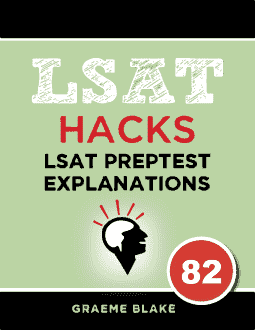QUESTION TEXT: Scientist: A number of errors can plague a data-collection…
QUESTION TYPE: Paradox
PARADOX: Researchers correct errors in data. In the scientists field, researchers tend to correct data in ways that support Jones’ theory rather than ways which undermine it.
ANALYSIS: Note that multiple researchers are doing corrections. This isn’t just Jones doing a whole bunch of corrections on his own.
It sounds either like researchers are biased towards Jones’ theory, or that Jones’ theory is correct and thus corrections tend to support it.
___________
- This talks about when to accept a theory. But we’re trying to explain patterns in data correction.
- CORRECT. If this is true, it explains the situation. The researchers presumably think Jones’ theory is correct, so they’re looking for errors by checking for datapoints that heavily contradict the theory. They are then more likely to detect errors here and switch them to favor Jones’ theory. Either because Jones’ theory is correct, or because the researchers are biased in favor of it. Greater scrutiny = researchers look harder for errors when data conflicts with Jones.
- This talks about which lines of research scientists pursue. But the stimulus is about which errors scientists correct when reviewing research. The researchers correcting errors are not pursuing new lines of research. They’re just fixing problems.
This answer could have been right had it said “researchers are more likely to check for errors if a statement contradicts theories they favor”. - This is true, but we’re not looking for a true statement. We’re looking for something that explains the situation. The stimulus wasn’t about finding all errors. It was about what sort of corrections are made to errors that are found.
- This makes the situation more puzzling. Jones’ theory isn’t the only possible theory, so it’s odd that all corrections favor Jones’ theory. Is this due to bias? A sign that Jones is right? We don’t know.
Recap: The question begins with “Scientist: A number of errors can plague a data-collection”. It is a Paradox question. Learn how to master LSAT Paradox questions on the LSAT Logical Reasoning question types page.
More Resources for Paradox Questions
- Intro Course lesson: This intro course lesson covers Paradox questions.
- Mastery Seminar lesson: This LR Mastery seminar lesson covers paradox questions.


Leave a Reply